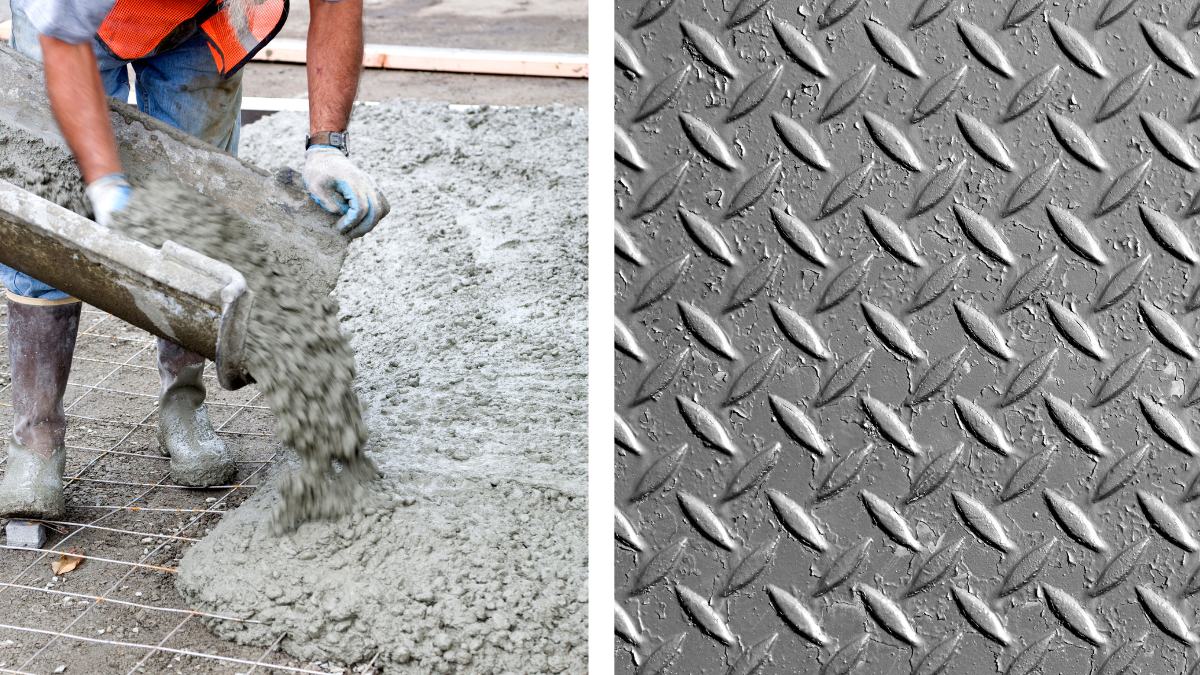Concrete and steel are two materials that have been used in construction for many years. They have unique properties that make them both suitable for certain types of projects. It is important to understand the differences between the two, including their weight.
This article will explore the question of whether concrete is heavier than steel (yes, it is!). We will discuss the factors that affect the weight of these materials and the implications of this comparison.
Does Concrete or Steel Weigh More?
The answer to the question, “Is concrete heavier than steel?” is a resounding yes. Concrete is typically much heavier than steel and can range from 2.4 to 2.8 times heavier. This is due to the fact that concrete is composed of a variety of materials, including sand, gravel, and cement, that add to its overall weight.
Comparing the Weights of Concrete and Steel
When it comes to building and construction, two of the most commonly used materials today are concrete and steel. These materials are used in many different types of structures and each has its own unique advantages and disadvantages. While concrete is often thought of as being a much heavier material than steel, the actual weight of these two materials is often much closer than many people realize.
Concrete is a very dense material, which means that it weighs more than many other materials, including steel. On average, a cubic foot of concrete weighs about 150 pounds, while a cubic foot of steel weighs only about 49 pounds.
Concrete is much more resistant to damage and can withstand higher temperatures than steel. It is also much more durable than steel and will last much longer. Steel, on the other hand, is much more malleable and can be formed into almost any shape. This makes it ideal for many types of structures, such as bridges, buildings, and other structures.
When it comes to cost, steel is often more expensive than concrete. This is due to the fact that steel must be treated and coated in order to prevent corrosion. Concrete, on the other hand, does not require any type of treatment and is much less expensive to use.
While both concrete and steel have their own unique advantages and disadvantages, it is important to remember that the actual weight of these two materials is often much closer than many people realize. When making a decision between the two materials, it is important to consider the strength and durability of the material, as well as the cost of the material. This will help you make the best decision for your project.
Construction Considerations
The weight of concrete and steel is an important consideration when designing and constructing a building. The heavier the material, the more structural support is needed to bear the load of the structure. Additionally, the weight of the material will affect the cost of the building, as heavier materials can require more labor and materials to construct.
Depending on the size and weight of the structure, different materials should be used to ensure structural integrity. Steel is a lightweight and strong material that can be used for many construction projects, but concrete should be used for heavier structures.
FAQs
Q1: How much heavier is concrete than steel?
A1: Concrete is about 2.5 times heavier than steel per unit volume.
Q2: What are the differences in strength between concrete and steel?
A2: Steel is typically stronger than concrete, but concrete can be reinforced with steel to make it much stronger.
Q3: How does the weight of concrete affect its strength?
A3: Generally, the heavier the concrete, the greater its strength and durability. However, other factors such as the type of reinforcement and the amount of compression applied also play a role.
Conclusion
Concrete is heavier than steel, but the difference in weight is not significantly large. Although steel is much stronger and is used to build large structures, concrete is still a popular choice for construction due to its affordability and durability. Ultimately, the choice of material used in any construction project depends on the specific needs and requirements of the project.
